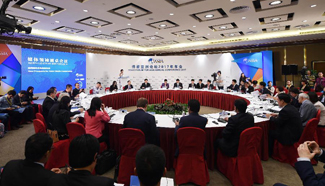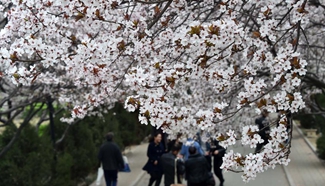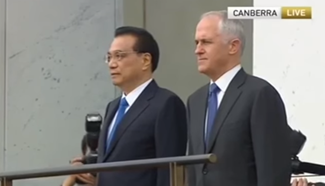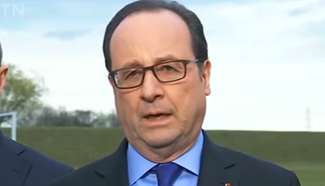BEIJING, March 23 (Xinhua) -- Beijing introduced a reform plan on Wednesday to end markups on drug prices and adjust prices of 435 medical services, the boldest move so far to improve the healthcare system in China.
Starting April 8, a medical service fee will replace drug markups, registration and treatment fees, according to the plan.
Drug prices were previously marked up by as much as 15 percent, but this will be disallowed in more than 3,600 hospitals and medical institutions in the city.
In the meantime, prices of certain medical services that involve a lot of experience, skills and labor of medical staff will be increased, including acupuncture, operations and nursing. But fees for use of certain equipment, such as computed tomography (CT) and nuclear magnetic resonance (NMR), will be brought down.
Most prices for the 5,300-plus medical services offered at the city's public hospitals were set in 1999, 75 percent of which have been below costs, said Li Sufang, deputy head of the Beijing municipal development and reform commission.
Due to poor government funding, public hospitals have relied heavily on markups on drugs, high fees for examinations and sales of materials such as bandages, creating an incentive for doctors to over-prescribe and advise unnecessary check-ups.
"Separating treatment and drug sales will cut off the channel for making money through over-prescription and help medical practitioners provide more and better treatment," said Fang Laiying, head of the Beijing municipal health and family planning commission.
To ensure medicine prices drop, Beijing will mandate transparent drug purchases, choosing suppliers through open bidding and requiring the full disclosure of drug and producer information.
Fang said the whole city consumed 824 million yuan (119 million U.S. dollars) worth of atorvastatin calcium tablets, a type of lipid-lowering medication, in 2015. Under the decreased purchase price, 83 million yuan could be saved on just this one drug.
According to calculations, overall medical costs for Beijing residents will remain balanced and there will be no increased burden on patients, Fang said.
Furthermore, Fang said community hospitals and medical institutions will be given the same access to the medicines that are usually prescribed in high-level hospitals, so that patients will have more choices.
The reforms also include adjustments to medical aid to low-income residents. The reimbursement ratio of outpatient service will be raised to 80 percent with a yearly cap of 6,000 yuan from the present 70 percent and 4,000-yuan cap. Eighty percent of inpatient service costs, with a yearly cap of 60,000 yuan, will be covered by medical aid. Aid to poor patients with major diseases will also be bumped to up to 120,000 yuan a year, or 85 percent of the total medical bill, from the present 80,000-yuan cap and 75 percent.
The medical reforms play a vital role in realizing the ambitious national goal of building a "healthy China" and serve as a test for the rest of the country, Fang said, adding that implementation is nevertheless not an easy job.












